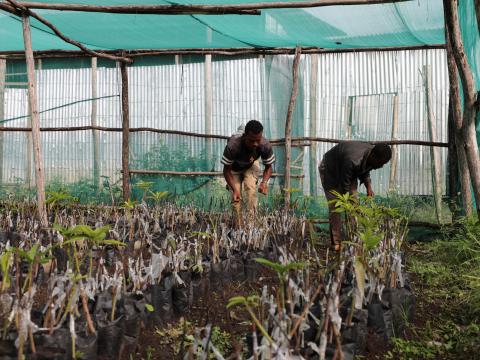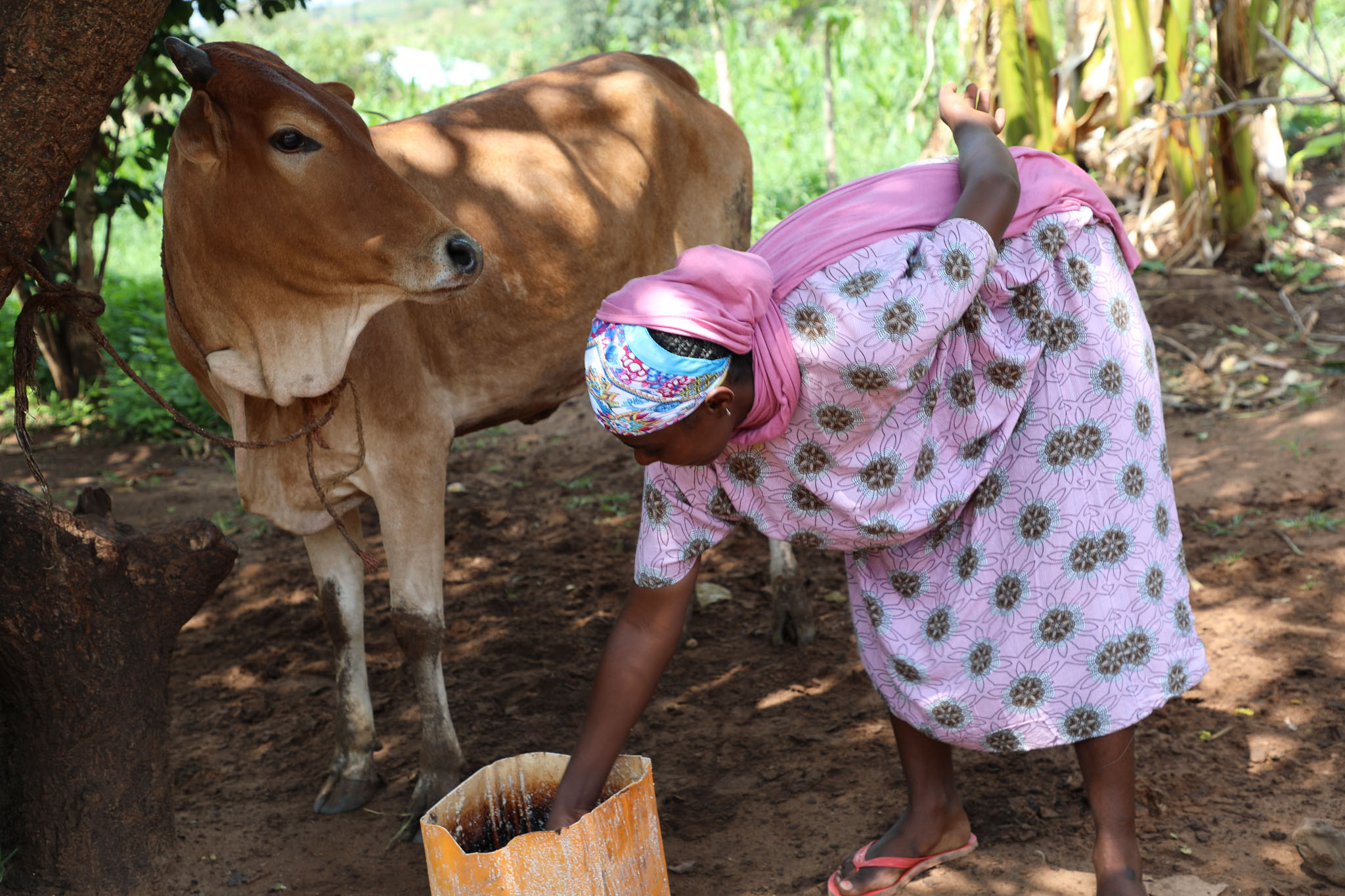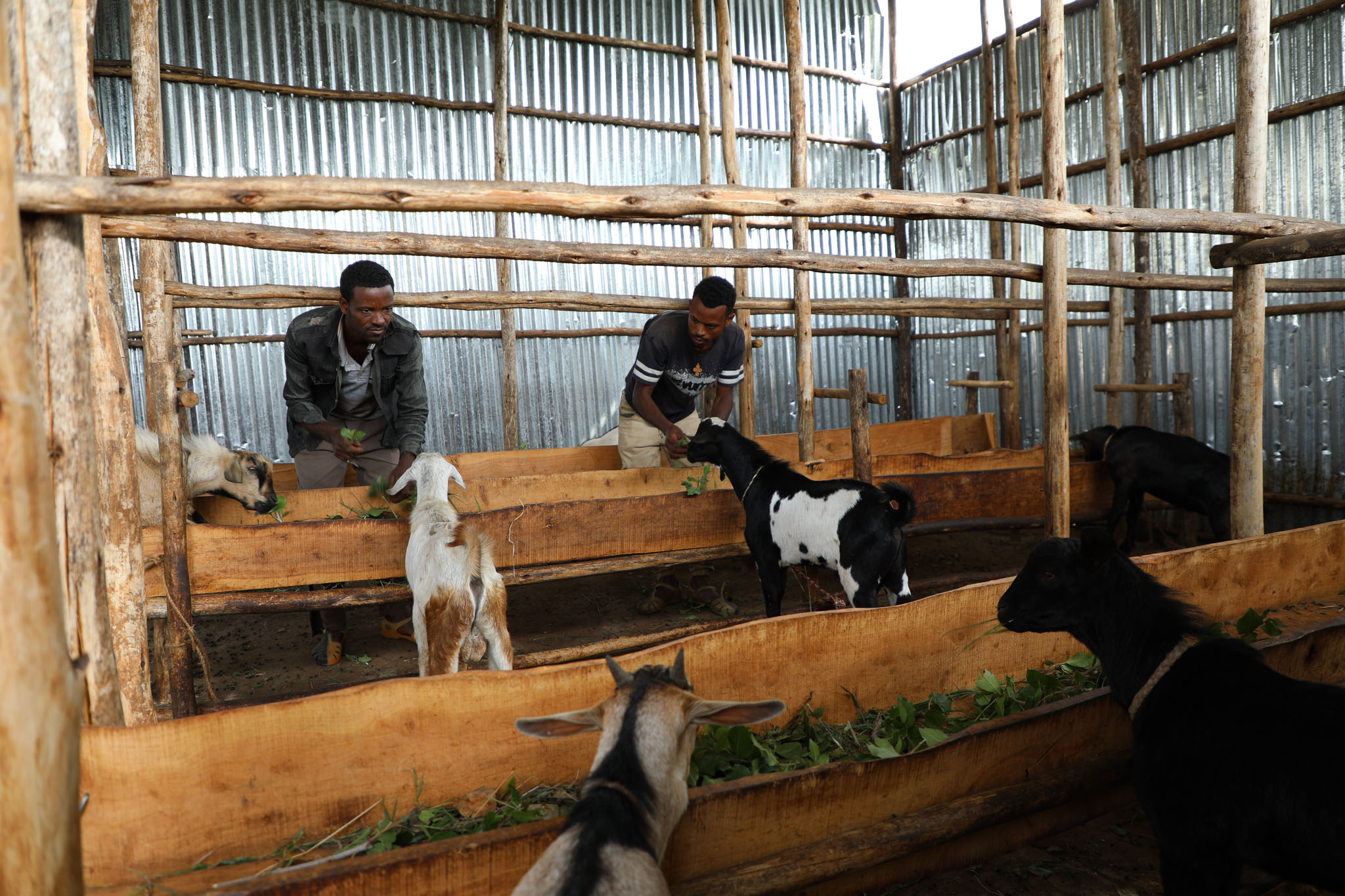Building Futures, Breaking Cycles: The Journey of Three Young People

In Ethiopia’s Oromia region, a quiet yet powerful transformation is underway. Young people like Shimelis, Senedu, and Mulugeta from Habro Woreda are creating new hope and opportunity within their communities.
All three are members of the Urji Youth Village Economic and Social Association (VESA), formed in 2023 as part of U.S. government investments delivered via the SPIR II project. VESAs use strategies to empower households supported by the Government of Ethiopia’s Productive Safety Net Programme (PSNP), helping food-insecure families save money and access loans to diversify both their income and their meals. For example, with a VESA loan, families can buy chickens to produce eggs, which they can consume or sell for additional income.
Before joining Urji VESA, 25-year-old Shimelis, 22-year-old Senedu, and 30-year-old Mulugeta were unemployed and dependent on their parents, who themselves rely on the PSNP, where their family accesses food and modest cash payments in exchange for their labour on public works that benefit their community. Today, the three young people are small business owners, raising and fattening goats and cattle to sell in local markets for a profit.
Urji VESA is one of many community-led groups established under SPIR II, each composed of 15 to 30 members. These groups follow a savings and loan model, meeting weekly, every Friday in Urji’s case, to contribute savings, access loans, and participate in a social fund that offers basic insurance. Members can add to the group’s savings by purchasing shares - up to five shares per week, with each share costing 30 Birr (approximately USD 0.20).
“I was eager to work and support my parents and younger siblings, but I did not know how to start, because doing anything requires money,” says Shimelis. “Joining the youth VESA was an eye-opening experience. I gained practical knowledge that helped me engage in a business I could realistically manage.”
 SPIR II trains members with business and financial management, as well as technical skills, equipping young people like Shimelis, Senedu, and Mulugeta with the knowledge and confidence to use their resources effectively.
SPIR II trains members with business and financial management, as well as technical skills, equipping young people like Shimelis, Senedu, and Mulugeta with the knowledge and confidence to use their resources effectively.
A key component of SPIR II’s success is its partnership with Siinqee Bank, a local private financial institution that supports VESA members in the Oromia region in accessing formal loans. Since the programme’s inception, 5,794 PSNP households in eight woredas of Oromia have taken loans totalling over $1,101,204.
Shimelis received a 25,000 Birr (180 USD) loan from Siinqee Bank, which he used to purchase and fatten a calf to sell. He now plans to expand his business further.
In 2023, after joining Urji VESA, Senedu, too, has also achieved success. She borrowed 10,000 Birr (183 USD) to buy a goat. After fattening it, she sold it for 20,000 Birr (approximately 144 USD), doubling her investment and fully repaying her loan. Then, in 2024, she secured a 40,000 Birr loan (552 USD) to buy a calf, which she is currently raising to sell.
“I feel hopeful and encouraged to work hard because I now have the resources and the right skills to lift myself out of poverty,” Senedu adds.
Mulugeta also joined Urji VESA in 2023. “I wanted to change my life,” he explains. “ In January 2024, I took out a 30,000 Birr (414 USD) loan and purchased livestock. After three months, I sold my livestock for a 35,000 Birr (483 USD) net profit. I reinvested in two goats and a calf.”
 In addition to individual successes, the Urji Youth VESA group has greatly benefited from SPIR II’s support. Of the 14 members, 13 were granted bank loans totalling 325,000 Birr (2,341 USD). Each earned 25,000 Birr (180 USD), which they pooled to purchase 13 goats. The group manages the business collectively and is now planning to acquire 15 more goats for fattening.
In addition to individual successes, the Urji Youth VESA group has greatly benefited from SPIR II’s support. Of the 14 members, 13 were granted bank loans totalling 325,000 Birr (2,341 USD). Each earned 25,000 Birr (180 USD), which they pooled to purchase 13 goats. The group manages the business collectively and is now planning to acquire 15 more goats for fattening.
‘Within three months, we plan to fatten the goats, sell them at the market, repay our loans, and make a profit,’ Mulugeta says.
Their youth VESA group also received 400 mango tree seedlings from the SPIR II project, which they plan to sell to local farmers for fruit production. “This has a dual purpose,” Mulugeta explains. “It allows us to generate income for our VESA group, while also providing farmers with access to more diverse and nutritious crops.”
SPIR II also connected the youth to rehabilitated watersheds, where the local authority granted them a piece of land to use for a period of five years, allowing them to pick grasses for animal feed using a cut-and-carry system. This preserves the soil and health of the watershed while making use of the forage.
The SPIR II project, led by World Vision Ethiopia and implemented in collaboration with CARE, ORDA Ethiopia, and IFPRI (learning partner), aims to transform livelihoods, build resilience, and improve food security and nutrition for poor rural households targeted by the PSNP. As the country’s flagship social protection initiative, the PSNP provides essential food and cash assistance to stabilise vulnerable households. But SPIR II goes further, assisting in breaking the cycle of poverty through livelihood development, skills training, and access to loans.
SPIR II uses a comprehensive approach that includes agricultural and non-agricultural livelihood diversification, capacity building, market linkages, and increased access to finance. By creating economic opportunities within communities, the project helps reduce migration, stimulates local economies, and fosters long-term self-sufficiency.
Through SPIR II, U.S. investment is doing more than providing short-term assistance. It is laying the groundwork for a resilient and prosperous generation of young Ethiopians.
The impact goes beyond numbers. It is reflected in the real-life stories of young people like Shimelis, Senedu, and Mulugeta—who are not only supporting their own families but also uplifting their communities and strengthening the broader regional economy. Their younger siblings look up to them, watching their growth with hope for the future. All three are the eldest children in their families, setting an inspiring example for those who follow.
By Emnet Dereje, Communications Specialist (SPIR II), World Vision Ethiopia